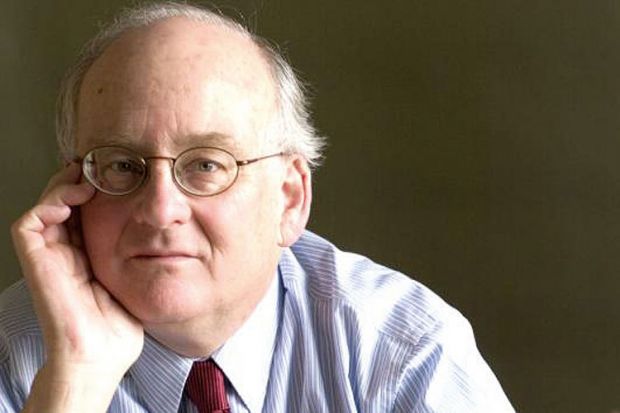The US’ public higher education system has engaged in an “un-excellence initiative” that will lead to a drop in the quality of its universities, a leading international higher education scholar has claimed.
Philip Altbach (pictured), research professor in higher education at Boston College, said that budget cuts to state-funded institutions in the US will “catch up with us pretty soon in terms of the general excellence [of institutions] and maybe their place in the rankings”. He added: “You can’t starve a [higher education] system”.
According to US thinktank the Center on Budget and Policy Priorities, 47 states in America spent less per student on higher education during the 2014-15 academic year than they did before the global recession and 31 states have cut the budget for universities by more than 20 per cent. In the past year, 13 states have further cut higher education funding, it claimed.
Earlier this year, Scott Walker, the governor of Wisconsin, signed a new state budget cutting $250 million (£161 million) from Wisconsin’s education system and removing from state law tenure protection for professors at the institutions.
The California State University system’s budget also fell by $900 million, or 27 per cent, between 2008 and 2012. Funding for the state’s public institutions has increased since then, but Professor Altbach said that the universities are still vulnerable.
Speaking in an interview with Times Higher Education, he said: “In some ways the US, in the last few years, has been engaged in what I call an un-excellence initiative in our public higher education system.
“The US system is quite stable and it takes a long time to significantly damage a university that has been built up and has been quite successful over a century. But we’re doing our best to make them not as good as they once were.”
Professor Altbach also commented on Japan’s higher education system, which he said has an “OK” level of funding “but not enough to get [the universities] to top class [level]”. He criticised the country’s decision to concentrate funding on science, technology, engineering and mathematics subjects at the expense of the humanities and social sciences.
Twenty-six universities in the country have confirmed that they will either close or scale back humanities and social science faculties, after the education minister told them to “serve areas that better meet society’s needs”.
“That’s a common general direction for higher education funding around the world and particularly of some of the excellence initiatives, but the Japanese seem to be doing it in a very thorough and long-term way, and I think that’s a mistake because universities should be well-rounded institutions and offer all disciplines,” he said.
He added that it is too early to expect any results from Japan’s Super Global Universities project, which began last year and is designed to increase the number of foreign professors and foreign students at the country’s top research institutions.
POSTSCRIPT:
Print headline: US ‘un-excellence’ initiative will harm institutions, says scholar
Register to continue
Why register?
- Registration is free and only takes a moment
- Once registered, you can read 3 articles a month
- Sign up for our newsletter
Subscribe
Or subscribe for unlimited access to:
- Unlimited access to news, views, insights & reviews
- Digital editions
- Digital access to THE’s university and college rankings analysis
Already registered or a current subscriber? Login







